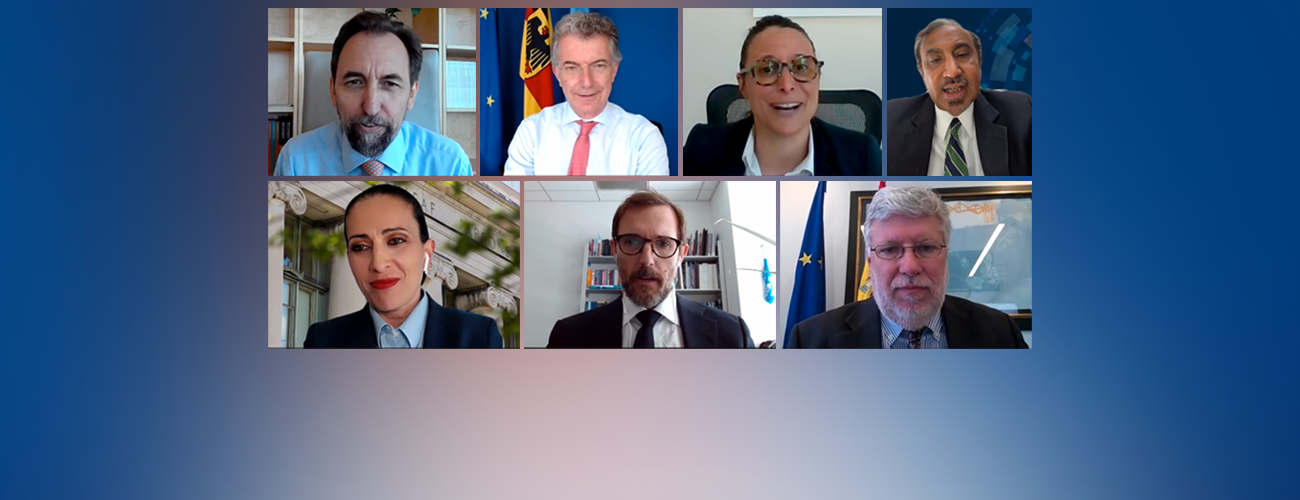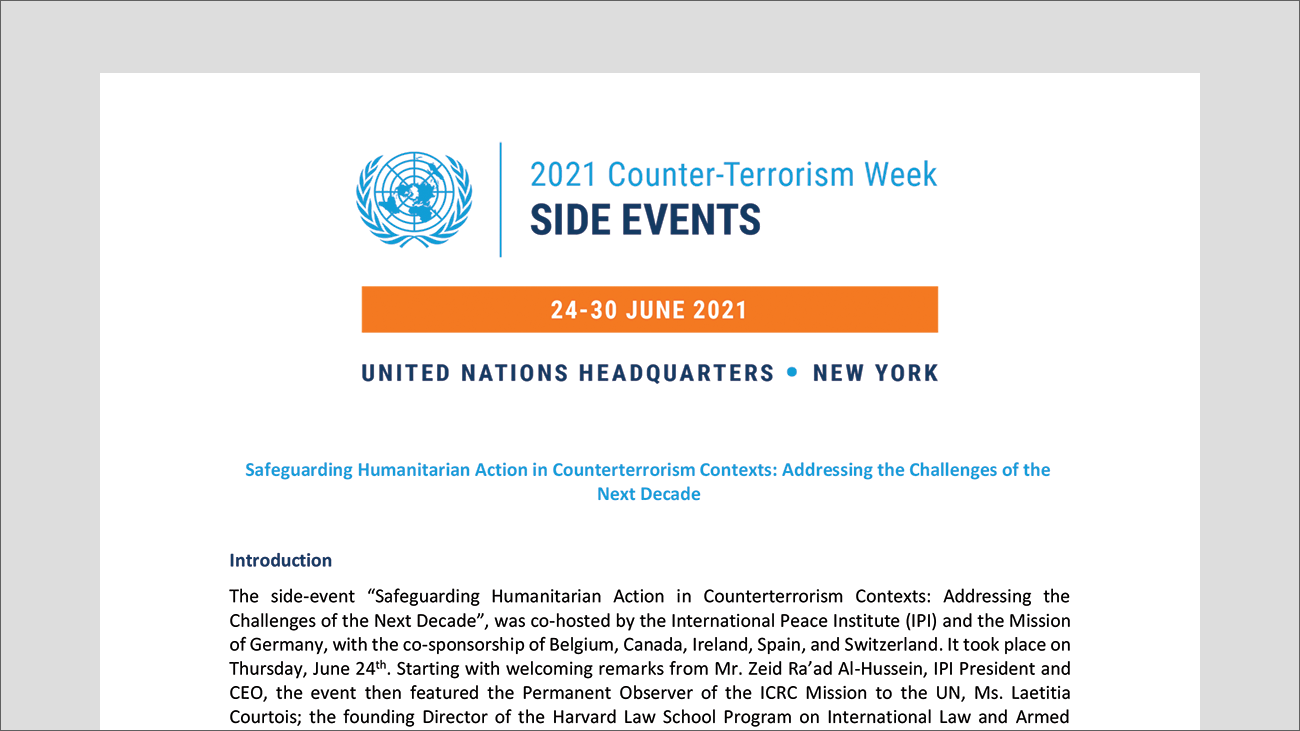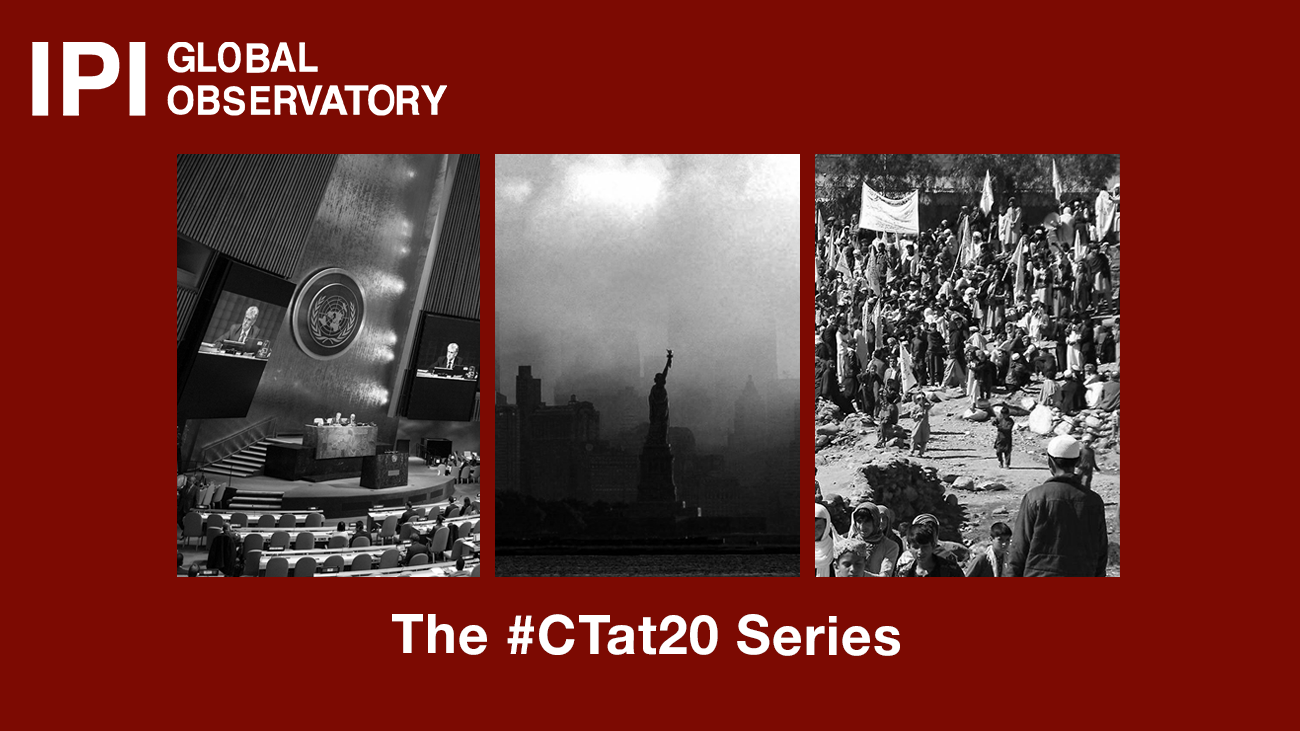On June 24th, IPI and the Permanent Mission of Germany, with the co-sponsorship of the Missions of Belgium, Canada, Ireland, Spain and Switzerland to the UN, cohosted a virtual event entitled “Safeguarding Humanitarian Action in Counterterrorism Contexts: Addressing the Challenges of the Next Decade.”
This virtual policy forum was convened as an official side-event on the margins of the 2021 High-Level Conference of Heads of Counter-Terrorism Agencies of Member States. Following the adoption of the seventh review of the Global Counter-Terrorism Strategy (GCTS) by the UN General Assembly, the event provided an opportunity to discuss the role of UN member states and of the UN Global Counter-Terrorism Coordination Compact in promoting respect for principled humanitarian activities in counterterrorism contexts.
Concerns about the impact of counterterrorism measures on humanitarian action have grown in recent years. Support for addressing this issue has especially increased since the inclusion of supportive language on international humanitarian law (IHL) in the Global Counter-Terrorism Strategy (GCTS) in 2016 and 2018, as well as the adoption of Security Council Resolutions 2462 (2019) and 2482 (2019). In his last report on the implementation of the GCTS, the secretary-general recalled Resolution 2462 and noted that “upholding the impartiality of humanitarian actors and refraining from any politicization of humanitarian assistance is critical, given that humanitarian actors are increasingly operating in settings with an active terrorist threat and being targeted by terrorists.” Despite growing momentum, the unintended challenges that counterterrorism policies pose for the delivery of humanitarian aid have not been alleviated, and actions to mitigate the impact of these measures remain limited.
As the characteristics of armed conflict and other situations of violence evolve—including a multiplicity of armed groups designated as “terrorists” by the UN Security Council and member states—there is a need to examine counterterrorism policies and humanitarian needs in a holistic manner. As member states, including the heads of their counterterrorism agencies, gather to discuss the evolution of counterterrorism in an age of transformative technology, greater attention should be given to the need to safeguard humanitarian action, as foreseen by Pillar IV of the GCTS and by relevant Security Council resolutions.
Panelists analyzed how UN member states and the UN system can concurrently address two considerable challenges they face over the next decade: an evolving terrorist threat and unprecedented humanitarian needs. Taking into account Pillar IV of the Global Counter-Terrorism Strategy and relevant UN Security Council resolutions, they discussed ways to ensure that counterterrorism efforts do not reduce the space for humanitarian actors to operate when and where needed. In particular, panelists highlighted how member states and the UN Global Counter-Terrorism Coordination Compact can best promote and facilitate humanitarian activities.
Welcoming Remarks:
Mr. Zeid Ra’ad Al Hussein, IPI President
Opening Remarks:
Ambassador Christoph Heusgen, Permanent Representative of Germany to the UN
Speakers:
Ms. Laetitia Courtois, Permanent Observer to the UN & Head of Delegation for the International Committee of the Red Cross (ICRC)
Professor Naz K. Modirzadeh, Founding Director of the Harvard Law School Program on International Law and Armed Conflict
Dr. Jehangir Khan, Director of the UN Counter-Terrorism Centre (UNCCT) and the Office of Counter-Terrorism
Closing Remarks:
H.E. Mr. Agustín Santos Maraver, Permanent Representative of Spain to the UN
Moderator:
Mr. Jake Sherman, IPI Senior Director of Programs










